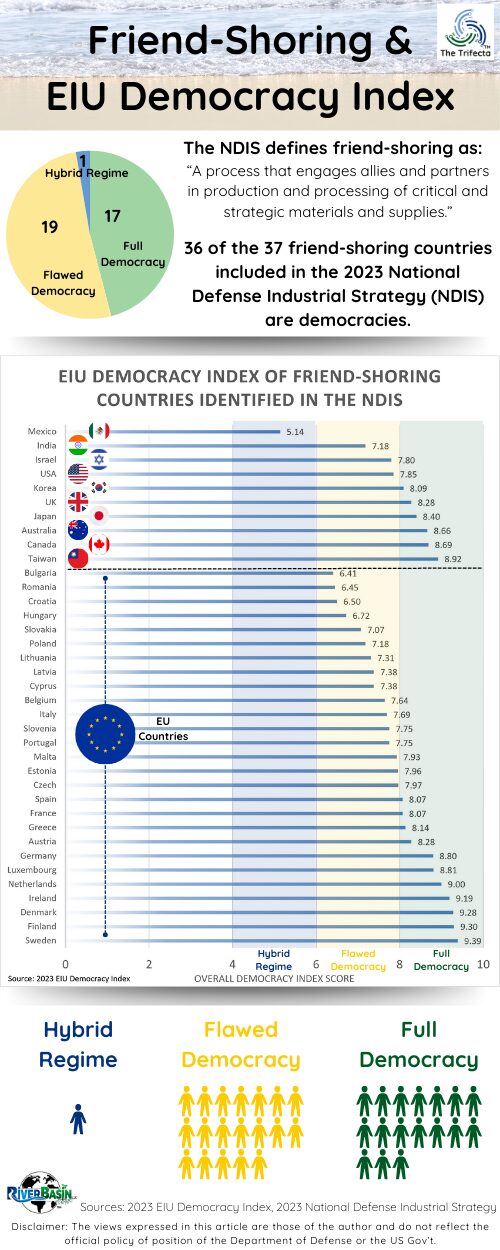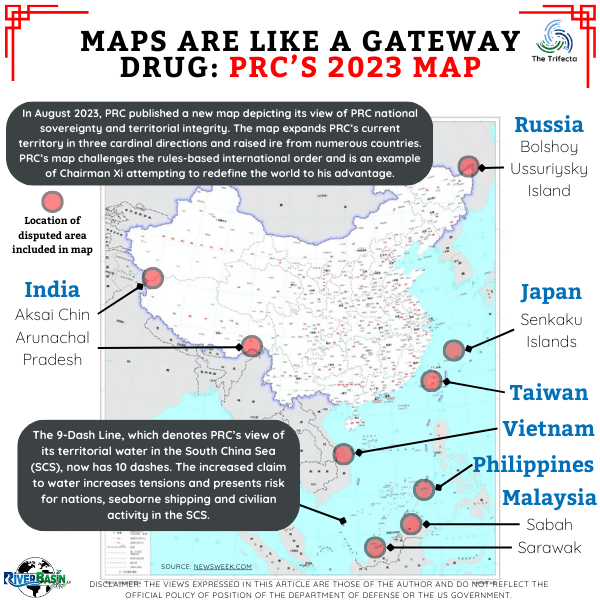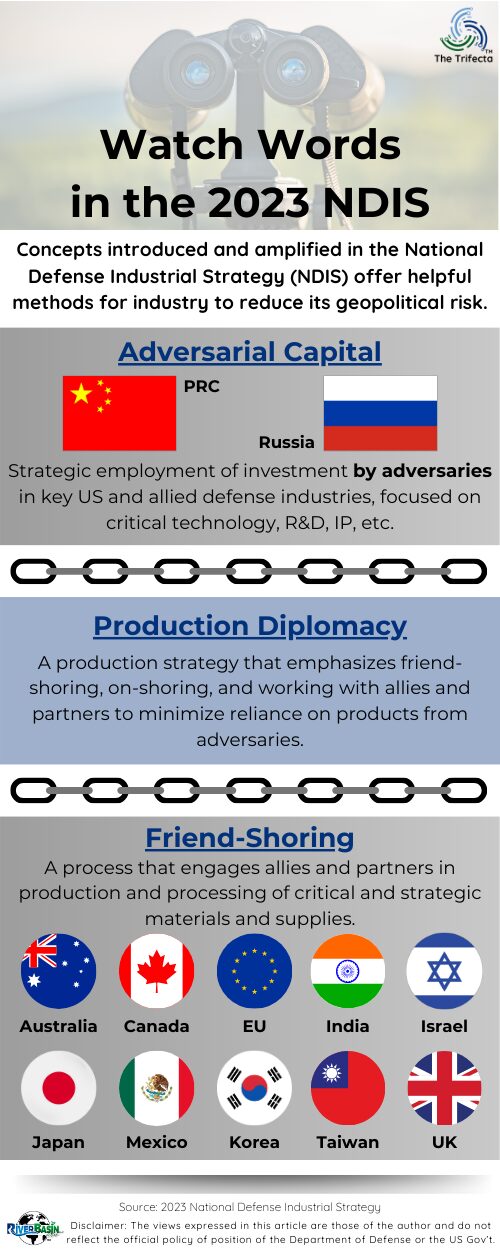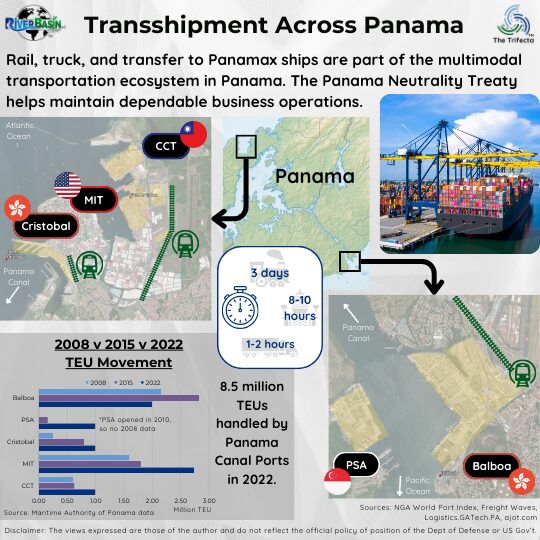
BLUF
Panama Canal’s port concessionaire is 80% owned by a Hong Kong company with ties to the PRC for decades. Law #5 gives the concessionaire significant authority that puts the port’s neutrality at risk. The geopolitical risk presented by PRC’s ability to exert significant influence over Panama Canal operations is high. The PRC likely has the capability but has not demonstrated the intent to control two critical ports.
Why does this matter?
The Panama Canal is a strategic asset whose impact on maritime trade and international commerce cannot be overstated. Transit through the canal (or overland) instead of sailing around South America saves roughly 22 days. Disruptions would have significant consequences for all industrial sectors, not just energy.
Key Take-Aways
- The Panama Canal port concessionaire is 80% owned by a Hong Kong company.
- Geopolitical risk concerns about PRC influence surfaced in the 1990s before the US considered gave the Canal to Panama.
- Law #5 was passed in 1997 and increased geopolitical risk by granting authorities to the port administrator.
Disclaimers: The views expressed in this article are those of the author and do not reflect the official policy or position of the Department of Defense or the U.S. Government. The appearance of external hyperlinks does not constitute endorsement by the United States Department of Defense (DoD) of the linked websites. The DoD does not exercise any editorial, security or other control over the information you may find at these locations.
Check out a previous post about energy tankers through the Panama Canal for a refresher on canal operations and ship sizes.
The Panama Canal port concessionaire is 80% owned by a Hong Kong company.
Hutchison Ports PPC (PPC = Panama Ports Company) is on its second 25-year concession to manage the Cristobal and Balboa Ports. Major ports were privatized in 1997 before Panama assumed canal administration from the US in 1999. In June 2021, the Panama Canal Authority (ACP) authorized the automatic renewal of the 25-year concession to Hutchison Ports.
There are multiple sources of unease about the renewal of Hutchison’s concession. The Center for Strategic and International Studies outlined several recent concerning factors but did not address Hutchison Port’s ownership. This post explores the ownership angle, which raised alarms back in the 1990s. More recent concerns, such as the Belt and Road Initiative, will be explored in future posts.
Geopolitical risk stems from historical roots of the Hong Kong behemoth that owns 80% of HPH.
Hutchison Ports PPC is a subsidiary of Hutchison Port Holdings (HPH) Limited. There are two companies that own HPH. In 2006, Singapore-based PSA International purchased 20% of HPH, according to a press release by CK Hutchison Holdings. PSA International is owned by Temasek Holding and, ultimately, the Government of Singapore. Recall from above, PSA International operates a port on the Pacific side of the Panama Canal, which competes with HPH’s Balboa Port.
The other 80% of HPH is owned by CK Hutchison Holdings. Based in Hong Kong, CK Hutchison’s roots extend to the 1860s when the Whampoa Dock Company began operations on the Pearl River in China. However, the business was really built starting in 1950 by Mr. Li Ka-shing, who is a renowned entrepreneur. Over the course of 50 years, Mr. Li built the CK Group into a global conglomerate. CK Hutchison Holdings employs 300,000 people across diverse market segments. At the end of 2023, it held $147 billion in assets and had a revenue of $33 billion. HPH is the port operator group of CK Hutchison Holdings.
Geopolitical risk concerns about PRC influence surfaced in the 1990s before the US gave the Canal to Panama.
Fully appreciating the perspective about why port administration matters, one must look back nearly 50 years into the past. Transfer of the Panama Canal in 1999 was decided over 20 years prior by the Panama Canal Treaties of 1977. In the 1970s, during treaty debates in Congress, significant concern emerged regarding implications of surrendering control over a strategic asset. It seemed to prioritize the Soviets over the PRC.
Then, in the late 1990s, when the transfer was underway, another round of discussion ensued among Congress and defense leaders. Among the concerns raised was the assertion that transfer of control would make “[Red] China the gatekeeper of the Panama Canal.” Senior defense officials and other analysts at the time voiced dire warnings of the security risks should China be given control of the Panama Canal.
Wait – how did China get roped into this conversation?
Because of the deep ties believed to exist between CK Hutchison Holdings’ then-Chairman, Mr. Li Ka-shing (mentioned above), and high levels of the PRC government. The belief persists that anything owned by CK Hutchison Holdings is essentially owned by the PRC.
An excerpt from Congressional testimony by author Richard Delgaudio:
Li Ka-shing’s relationship with the rulers of the People’s Republic of China goes back to the 1970s with Deng Xioaping. When Li Ka-shing received an honorary degree from Beijing University on April 28, 1992, it was handed to him by none other than Jian Zemin, the current dictator of the PRC. Why such an honor for Li Ka-shing? Simple. In the words of [author] Anthony B. Chan… “Li was the vital go-between that the geriatric bosses of Beijing needed to firm up the support of Hong Kong’s other leading merchants in the smooth recovery of the colony to China in 1997.” (Nov 16, 1999)
Mr. Delgaudio’s testimony is full of specific examples (with sources) detailing the ties of Mr. Ka-shing to senior PRC officials.
20 years later…geopolitical risk increases.
Despite the dire warnings of senior officials through the 1990s, transfer of port administration did not seem to cause any issues. Unlike the Soviets in Cuba, the PRC didn’t try to put nuclear missiles in Panama. During the first ~20 years after the transfer, Hong Kong was a growing former-British colony with high economic potential and relative independence from the PRC. (The British handed Hong Kong over to the PRC in 1997, the same year the first 25-year Hutchison Ports PPC concession started.)
Since the late 2010s, Hong Kong’s freedoms and pro-democracy activities have faced increasing resistance. In 2020, Beijing imposed a calamitous “national security law,” giving the PRC broad power to quell dissent, prosecute protesters and reduce Hong Kong’s autonomy. (This is another example of PRC challenging the rules-based international order.) The UN raised alarms over human rights issues related to the new law. Protests resulting from the new law led to a PRC response that raised even more human rights concerns.
For the Hong Kong people and the world, the 2020 national security law represented a seismic shift impossible to ignore. The PRC abruptly changed the status quo for Hong Kong. Simultaneously, the PRC pursued multiple avenues of investment in Panama to bolster their influence in the country.
The current CK Hutchison Chairman is a member of the PRC’s CPPCC.
According to the CK Hutchison Holdings website, Mr. Victor Li Tzar Kuoi has been the Director of CK Hutchison Holdings since 2014. He is the eldest son of Mr. Li Ka-shing, discussed above. Victor also holds titles of Executive Director, Managing Director and Deputy Chairman of the Company. In May 2018, he was appointed as Chairman of the Company.
At 59 years old, Mr. Li is younger than his four executive directors by at least 11 years. Besides many other impressive credentials, Mr. Li serves as a member of the PRC’s 14th National Committee of the Chinese People’s Political Consultative Conference (CPPCC). His membership is a five-year appointment, which started in 2023, and follows a separate five-year appointment during the 13th National Committee from 2018 to 2022.
The CPPCC is the PRC’s top advisory body and meets in conjunction with the National People’s Congress.
According to Nikkei Weekly in 1998, Victor’s father worked to secure CPPCC membership for his son to maintain contacts with PRC leadership. The CPPCC website highlights its role as the sole national political consultative body and an essential mechanism for multi-party cooperation. The Guardian described the CPPCC as a “rubber stamping parliament.”
The 14th CPPCC National Committee consisted of 2,171 members. The full membership list does not list a “Victor Li” (he was likely listed by a Chinese name the authors could not discern). However, the Hong Kong Standard reported his trip in March 2023. Victor’s attendance is far more important than the specific group to which he was aligned.
The CPPCC meets annually in conjunction with the National People’s Congress, which routinely releases major new policy as the session adjourns. For example, the national security law discussed above came from the 2020 session. In 2021, control was extended to ensure Hong Kong was only run by “patriots.”
Law #5 was passed in 1997 and increased geopolitical risk by granting authorities to the port administrator.
In 1977, the US and Panama signed two treaties. The Panama Canal Treaty cemented the US plan to give the Panama Canal to Panama. The Panama Neutrality Treaty aimed to guarantee non-discriminatory use of the canal by any party at any time.
Article II of the Neutrality Treaty states:
“The Republic or Panama declares the neutrality of the Canal in order that both in time or peace and in time of war it shall remain secure and open to peaceful transit by the vessels of all nations on terms of entire equality, so that there will be no discrimination against any nation, or its citizens or subjects, concerning the conditions or charges of transit, or for any other reason, and so that the Canal, and therefore the Isthmus of Panama., shall not be the target of reprisals in any armed conflict between other nations of the world.”
On July 2, 1997, Panama passed Law #5. The former Chairman of the Joint Chiefs of Staff testified before Congress the law was the result of PRC negotiation with the previous Panamanian leader. The law is significant because it transferred authorities from the Panama government to a contracted concessionaire. When the US gave Panama control of the Canal, the assumed expectation was that Panama would comply with the treaties it signed. By passing along significant authorities, Panama relinquished some of its ability to ensure compliance with the treaty. (We could not find an original source of Law #5 and are relying on primarily sworn testimony of a former Chairman of the Joint Chiefs of Staff.)
Multiple aspects of Law #5 allow violation or directly violate parts of the Panama Neutrality Treaty. According to Congressional testimony, Law #5 provides the following authorities to the Hutchinson Port PPC as the concessionaire:
Responsibility for hiring new pilots for the canal. Pilots have complete control of all ships passing through the canal. – Opportunity for discrimination.
Control over Atlantic and Pacific anchorages. – Opportunity for discrimination.
Control over the order of ships using the Pacific entrance. – Opportunity for discrimination.
Right to deny ships access to ports and entrances of the canal if they are deemed to interfere with Hutchison’s business. – Direct violation of the Neutrality Treaty. Also, the Panama Canal Treaty guarantees expeditious passage for the US Navy, which is at risk because of this authority.
The right to transfer its rights unilaterally to any third party, company, or nation. Not a violation, but permits concessionaire to transfer to PRC.
What is the geopolitical risk to transshipment and the Panama Canal?
Stated plainly, the risk is that the PRC can directly control the Balboa and Cristobal Ports, including transshipment across Panama. With control, for example, they could prioritize PRC or PRC-allied ships through the canal, charge different fees and tolls based on vessel affiliation, and refuse pilotage or anchorage to certain vessels. Worst case, the PRC could militarize the canal zone. Predicting global commerce ramifications is challenging, but the shockwaves would reverberate worldwide.
Risk contains two key components: capability and intent. Assuming the PRC can control ports doesn’t imply they have the intent, the other half of the risk equation. Intent, however, can change far more quickly than capability.

DOPSR 24-P-0377
Think About It...
- Where do your company’s value chains intersect with Balboa and Cristobal Ports?
- How long could your business sustain operations if the Panama Canal and transshipment operations were closed?
- Who in your company maintains situational awareness of risks like these?
- When would geopolitical risk to the Panama Canal be sufficient to drive your company to proactive mitigations?
Additional Reading:
Congressional Testimony by Admiral Moorer, former Chairman, Joint Chiefs of Staff (1998)
Peril in Panama: China as the Gatekeeper of the Panama Canal Threatens New Missile Crisis (1999)
Congressional Testimony by Richard A Delgaudio, author (1999)




